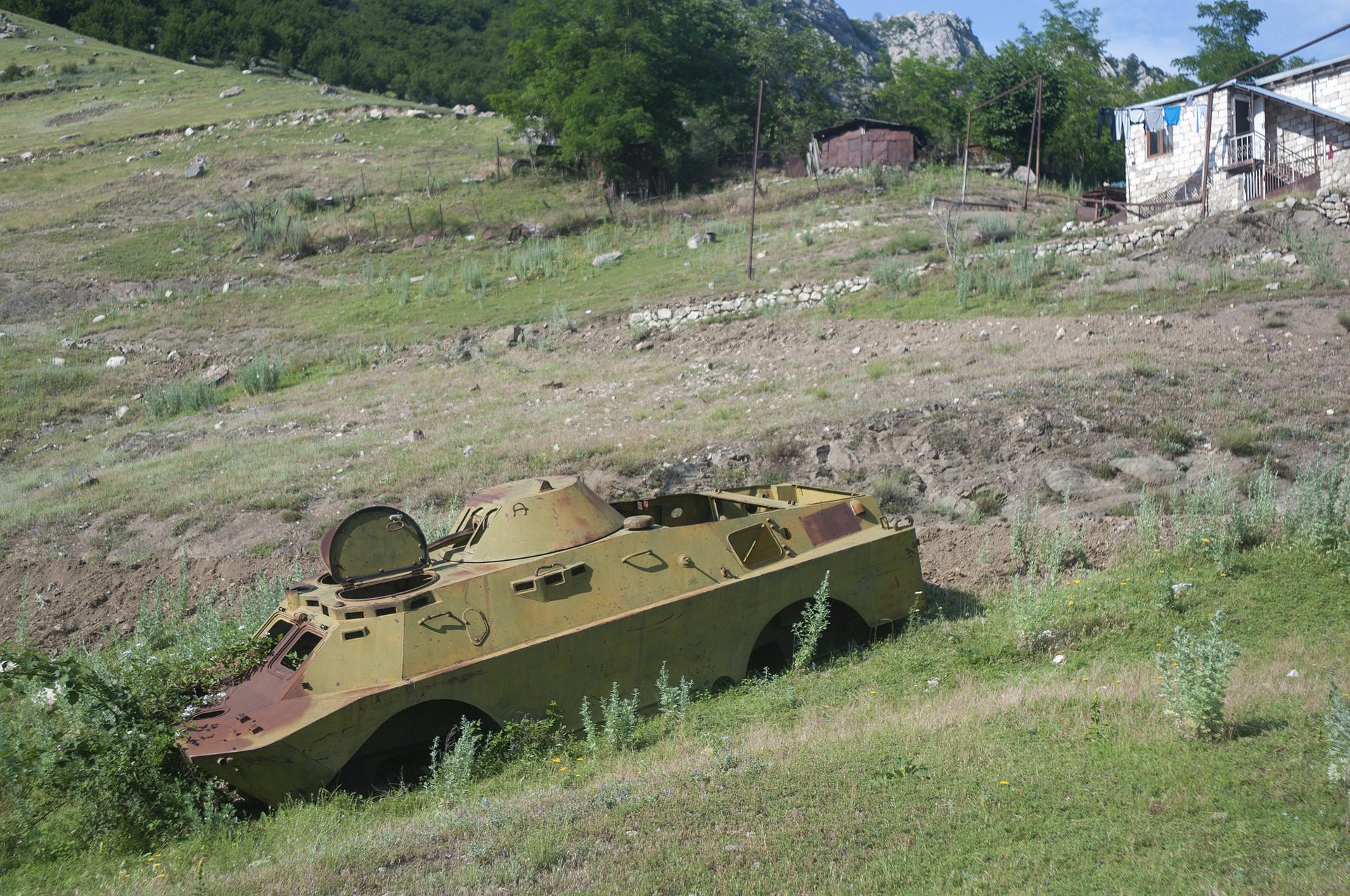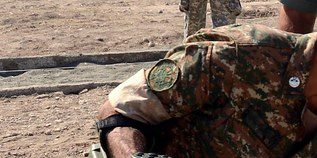The “Statement” issued jointly by the Prime Minister of Armenia, and the Presidents of Azerbaijan and Russia on Nov. 9, 2020 was described by Prime Minister Nikol Pashinyan as merely a ceasefire document and not the final resolution of the Artsakh issue
While this agreement brought to an end the ongoing war, it was in reality much more than a ceasefire. It included the return to Azerbaijan most of the territories liberated by Armenians in the 1990’s. It also made other concessions to Azerbaijan which are unrelated to Artsakh. Therefore, this document signifies a capitulation on the part of Armenia.
This “Statement” is a loosely worded document which needs serious clarification, if not renegotiation, to make it more precise. I will comment on all nine points of this “Statement”:
The first unusual point in this “Statement” is that while the three leaders agreed to stop the fighting “in their current position” (point 1), the Armenian side is obligated to return territories that were not conquered by Azerbaijan. Most ceasefires indicate a stoppage at the point of contact and the differences between the sides are later settled at the negotiating table. This is why I call this agreement a capitulation, not a ceasefire.
My second observation is that the “Statement” calls for the return of the Aghdam District to Azerbaijan without referring to the Armenian side as the one returning this territory (point 2). However, in point 6, the “Statement” names the Republic of Armenia as the side obligated to return the Kelbajar and Lachin Districts to Azerbaijan. This is a serious error on the part of Armenia since the liberation of Artsakh and the surrounding territories have always been presented as the work of the Armenian forces of Artsakh, not Armenia. With this sentence in the “Statement,” Armenia accepts that it was the one that occupied these territories, thus assuming legal liability for any compensation to Azerbaijan ordered by an international court. The reference to the “Republic of Armenia” should be amended to “Armenian forces.”
Point 3 of the “Statement”: The number of Russian peacekeeping forces in Artsakh is stated as 1,960. However, there are reports that there are many more Russian troops there now and possibly even more would be coming in the future. This is a deviation from the “Statement,” which means that other changes can also be made to this agreement.
Point 4 of the “Statement”: The Russian peacekeepers are mandated to remain between the two sides for five years, unless Armenia or Azerbaijan asks them to depart six months prior to the five year period. While it is understood that no peacekeepers can remain forever, this provision should alarm Armenians because Pres. Aliyev has announced that Azerbaijan wants all of Artsakh back, not just a part of it. Therefore, Azerbaijan will most probably ask Russia to withdraw its troops in 4.5 years, opening the door for a complete Azeri takeover of Artsakh. Even worse, Russian troops could withdraw much earlier should a new war break between Armenia and Azerbaijan.
Point 5 of the “Statement” mentions that a “peacekeeping center shall be established to oversee the ceasefire” without mentioning who will manage such a center. Several days after this “Statement” was signed, it was disclosed that Russian and Turkish troops will jointly manage this center to be located on Azerbaijan’s territory, outside of Artsakh. This was probably a concession by Pres. Putin to Turkey for not allowing its troops to join the Russian peacekeepers.
Point 6 of the “Statement” asked Armenia to return Kelbajar to Azerbaijan on Nov. 15, 2020. However, this date was later changed to Nov. 25. Once again, this indicates that it is possible to amend the terms of the “Statement.” Point 6 also calls for the construction of a new route “within the next three years,” to connect Artsakh with Armenia, bypassing Shushi which is now occupied by Azerbaijan.
Point 7 of the “Statement” provides that “internally displaced persons and refugees shall return to the territory of Nagorno-Karabakh and adjacent areas under the supervision of the United Nations High Commissioner for Refugees.” It is assumed that both Azeri and Armenian refugees will have the right to return to their homes in Artsakh and the surrounding territories. It is doubtful that Armenians would want to return to the territories under Azerbaijan’s control. It is not clearly stated if Azeri refugees have the right to return to the Armenian controlled part of Artsakh which could lead to clashes between the two communities.
Point 8 of the “Statement” calls for the “exchange [of] prisoners of war, hostages and other detained persons, and dead bodies.” However, there is no deadline specified for such an exchange. Since there are many more Armenian captives than Azeris, this has created a serious problem for the Armenian families of the captives who are subjected to barbaric treatment by Azerbaijan.
Point 9 of the “Statement” is the most critical one and the most dangerous for the future of Armenia. It calls for the establishment of a corridor between the main territory of Azerbaijan and Nakhichevan through the southern part of Armenia, near Iran’s border. This is a red line that no Armenian leader should have crossed. It endangers the sovereignty and territorial integrity of the Republic of Armenia. Such a corridor has been the dream of all Pan-Turanians to connect Turkey by land to Azerbaijan and beyond to the remaining Central Asian Turkic Republics. This is one point that Pashinyan should have adamantly refused to accept. I hope it is not too late to change this treacherous provision. One possibility is that should Azerbaijan violate any of the points of the “Statement,” Armenia would then declare point 9 of the agreement to be null and void. For example, if Azeri forces attack the currently Armenian inhabited part of Artsakh or shut down the new Lachin corridor, Armenia could then close down the Azeri corridor in the South of Armenia. Another opportunity could come in five years, if Azerbaijan asks the Russian peacekeepers to leave Artsakh. Armenia could then close the Azeri corridor crossing its territory, since the “Statement” requires that Russian troops guarantee the safety of this corridor. Pashinyan’s explanation, that this provision would allow Armenia to use the existing railroad through Nakhichevan and Azerbaijan to transport cargo to Russia, is a fantasy. No Armenian cargo will be allowed to cross through Nakhichevan or Azerbaijan. Furthermore, this corridor isolates Armenia from Iran, a critical border for Armenia. To make matters worse for Armenia and Iran, Azerbaijan plans to build a gas pipeline and a rail line through this corridor, thereby circumventing Iranian territory which would deprive Iran of lucrative revenues.
Most surprisingly, the ‘Statement’ makes no mention of the Jihadist mercenaries brought to Azerbaijan by Turkey. The presence of these terrorists is a violation of international law and poses a grave danger to Russia, Iran as well as Armenia. This is exactly what the French Foreign Minister pointed out during his recent visit to Armenia. This oversight must be corrected immediately by adding a new point to the ‘Statement,’ asking Azerbaijan to remove the Syrian mercenaries from its territory.
In addition to these specific points, the signed “Statement” should not be considered a legal document, since neither the Armenian Constitutional Court nor the Armenian Parliament has approved it. Pashinyan has no right to single-handedly sign a document on behalf of the Republic of Armenia without the consent of the appropriate bodies, as required by the Constitution.
Armenia now has at most five years to strengthen itself militarily by building or acquiring advanced weapon systems so it can repel a new attack by Azerbaijan and Turkey on Artsakh or Armenia. As mentioned before, Armenia should immediately recognize Artsakh either as an independent state or as part of the Republic of Armenia, thereby using this recognition as a bargaining card in negotiating a better agreement with Azerbaijan.



